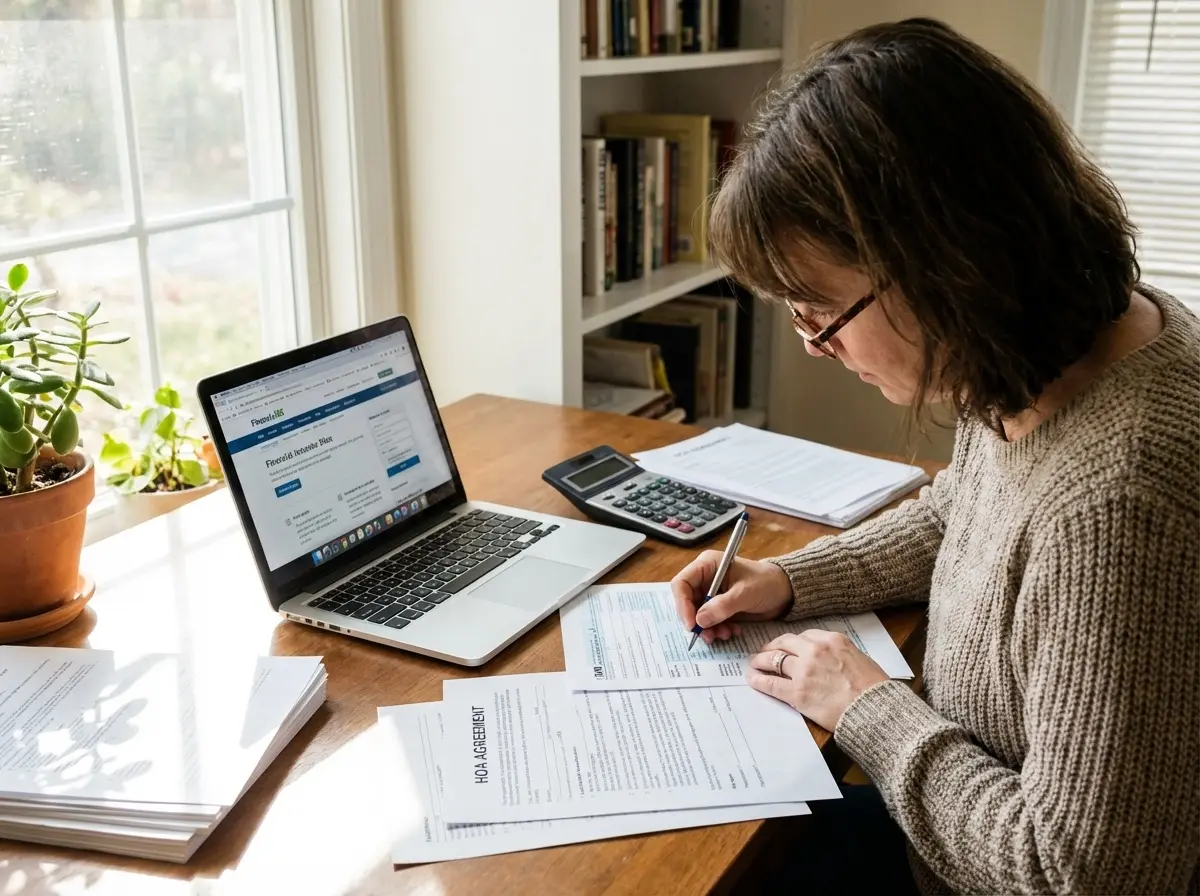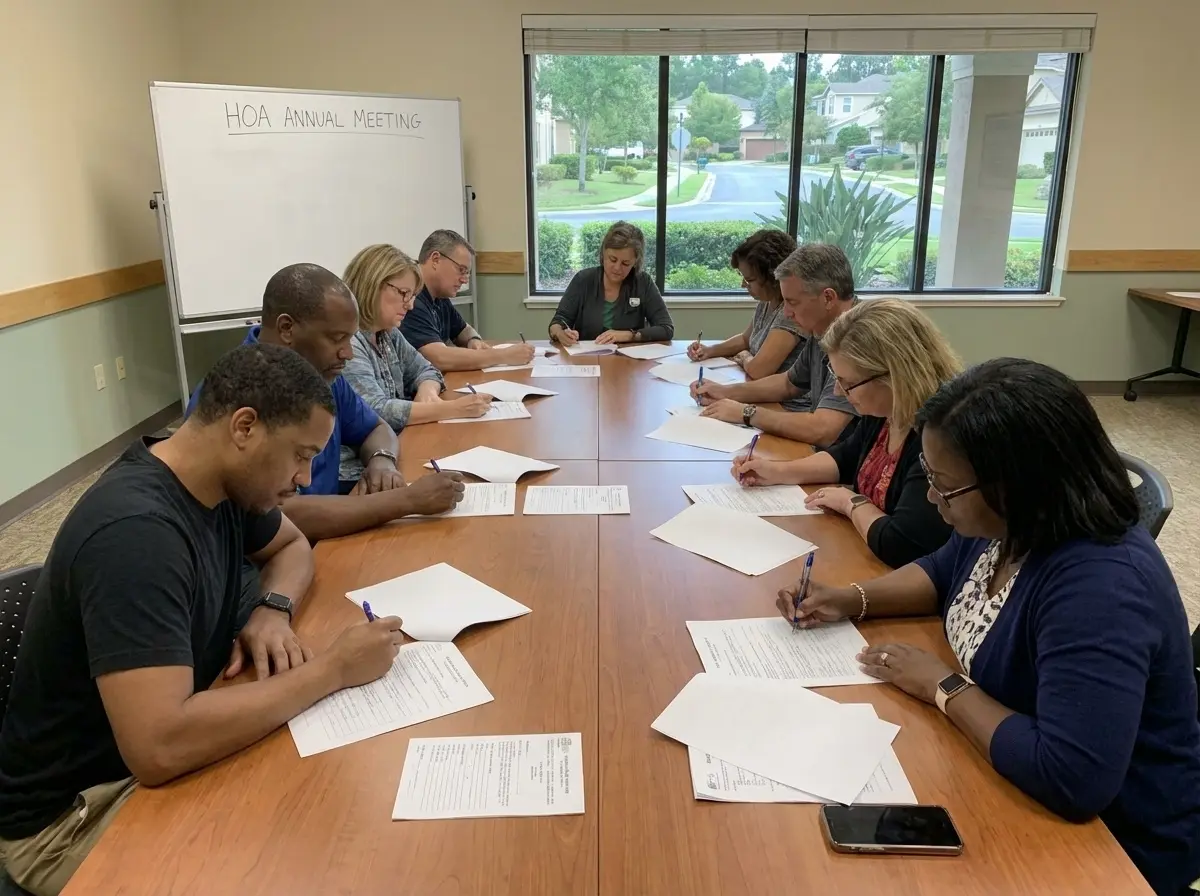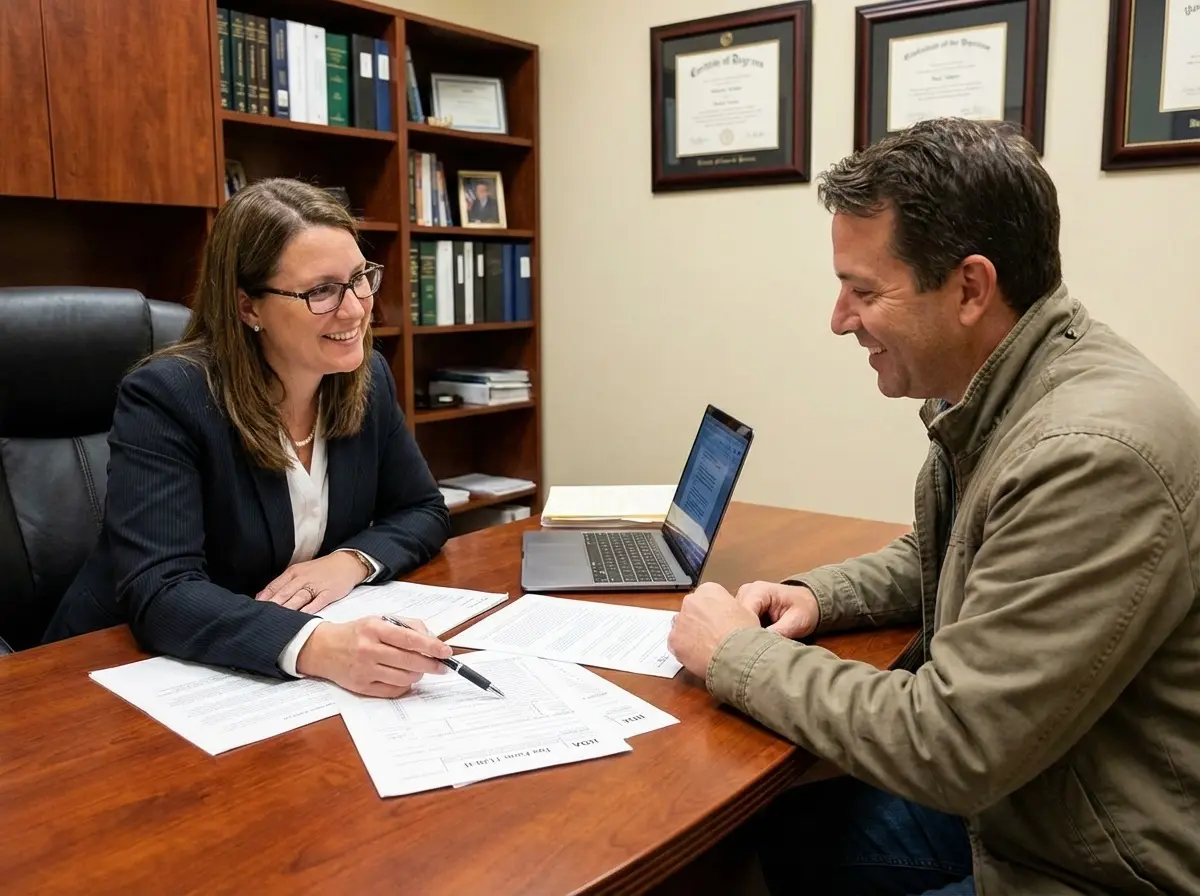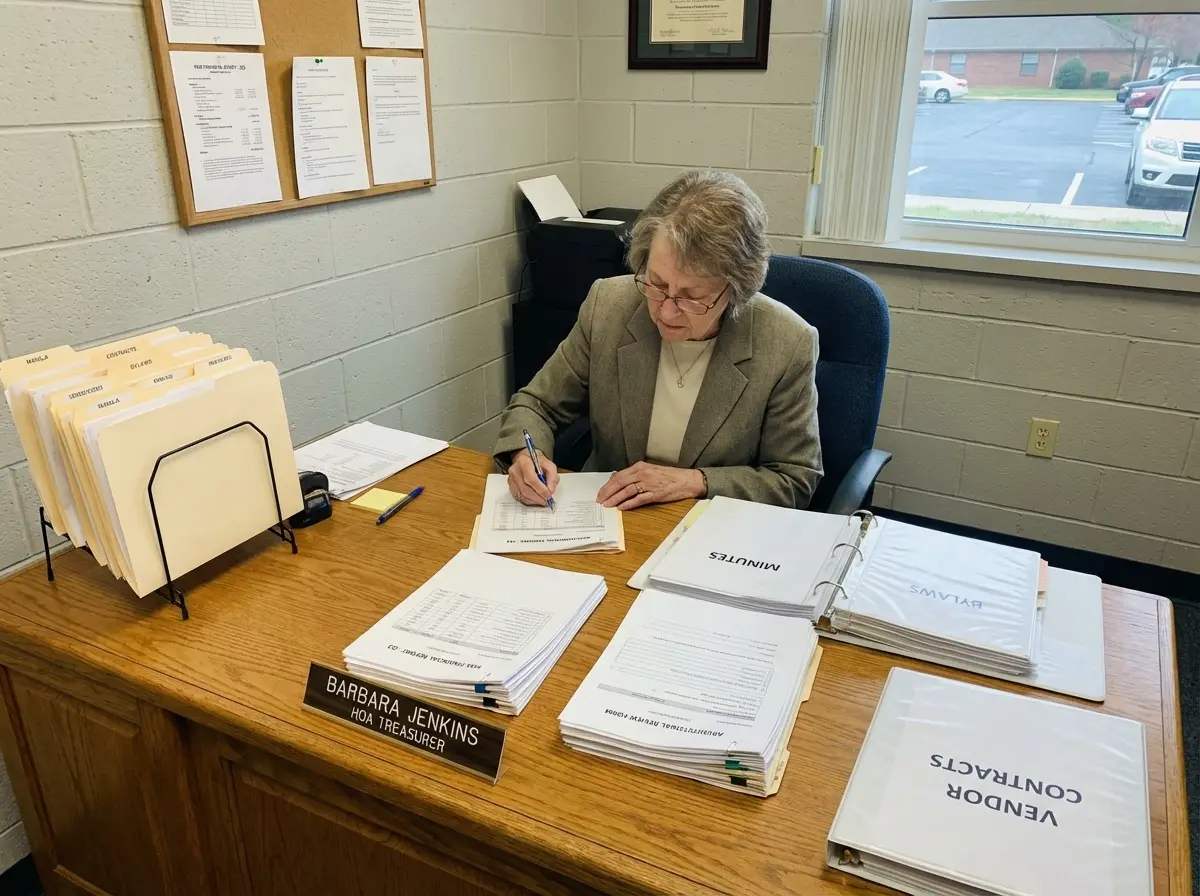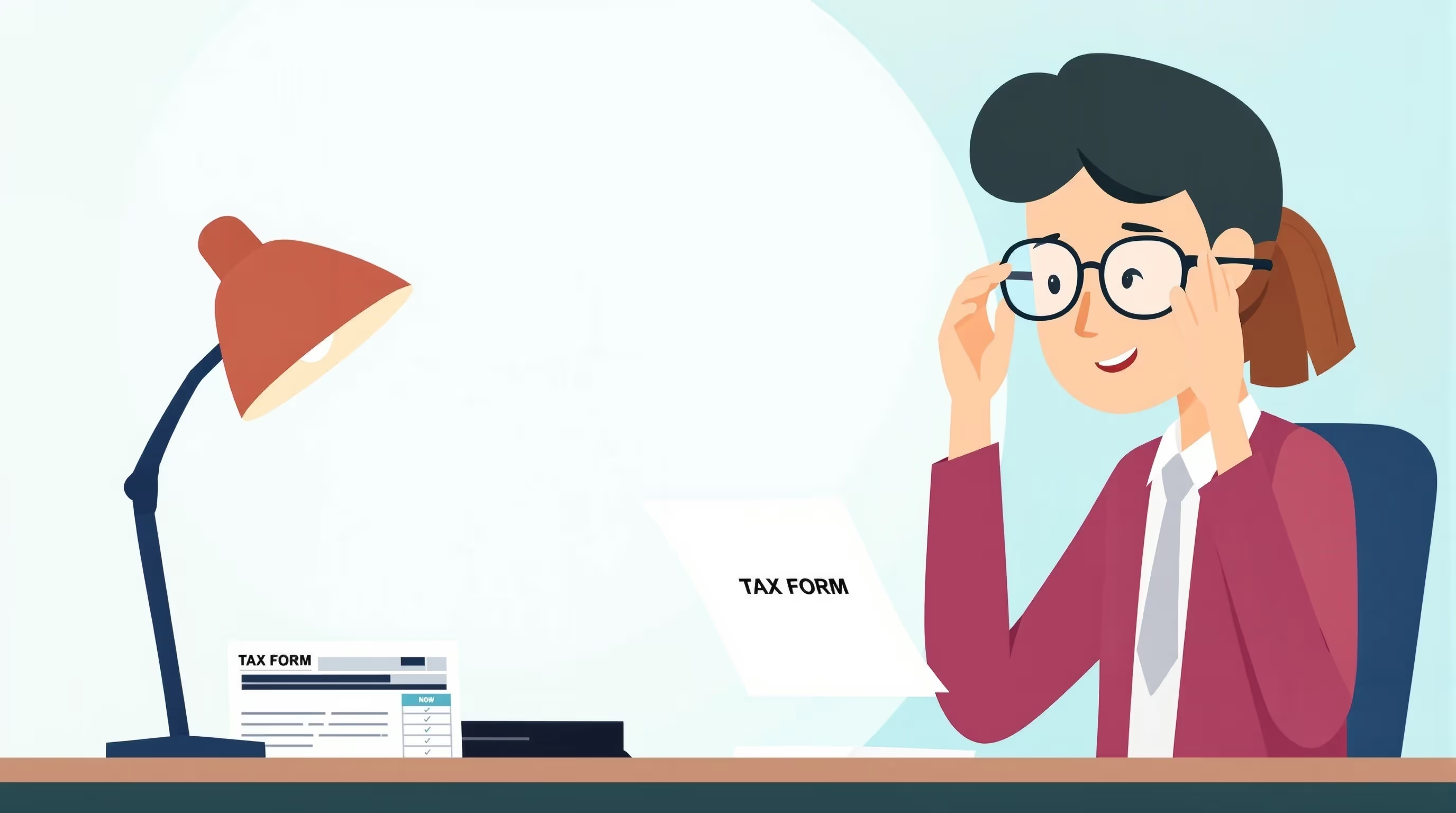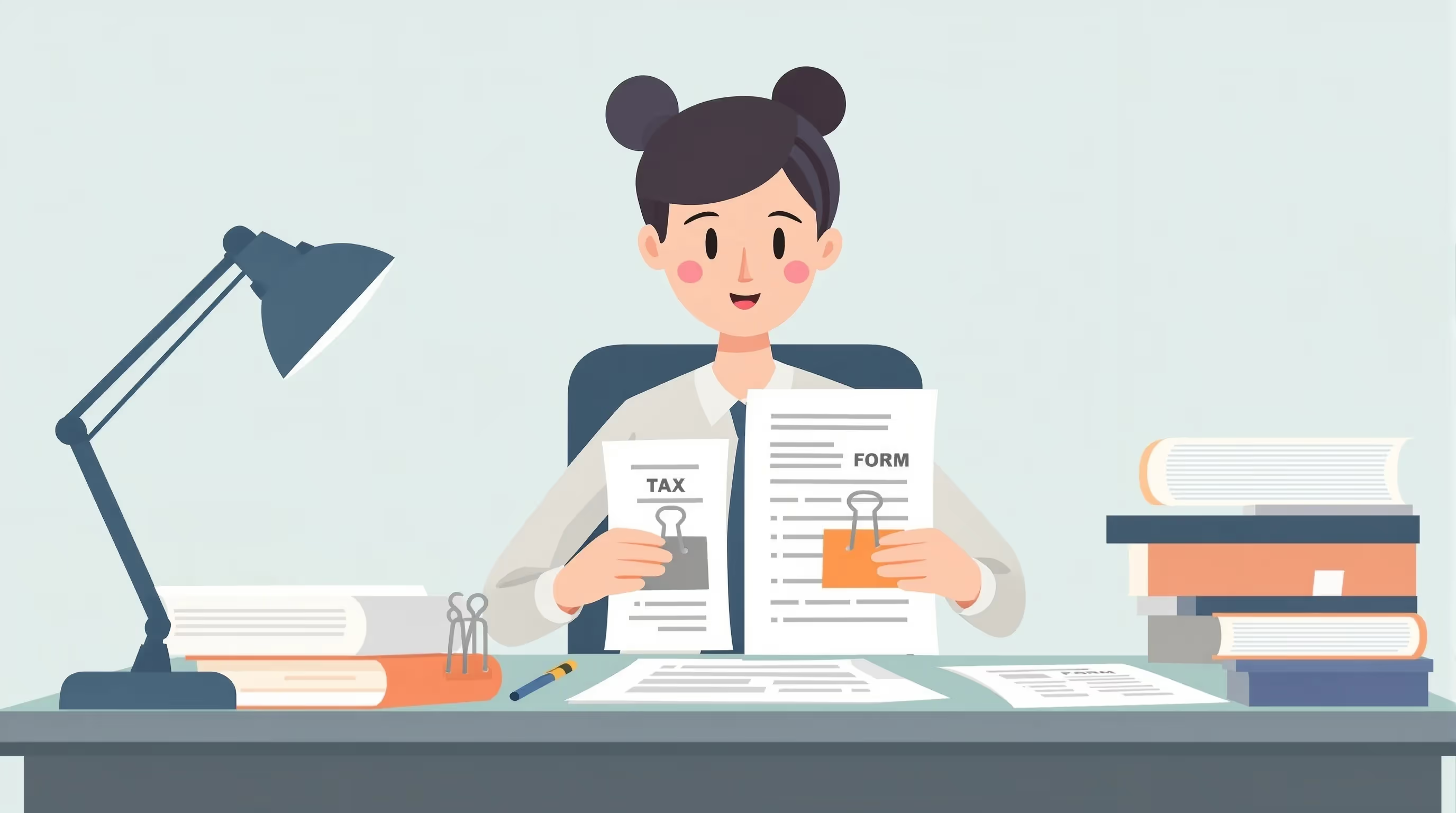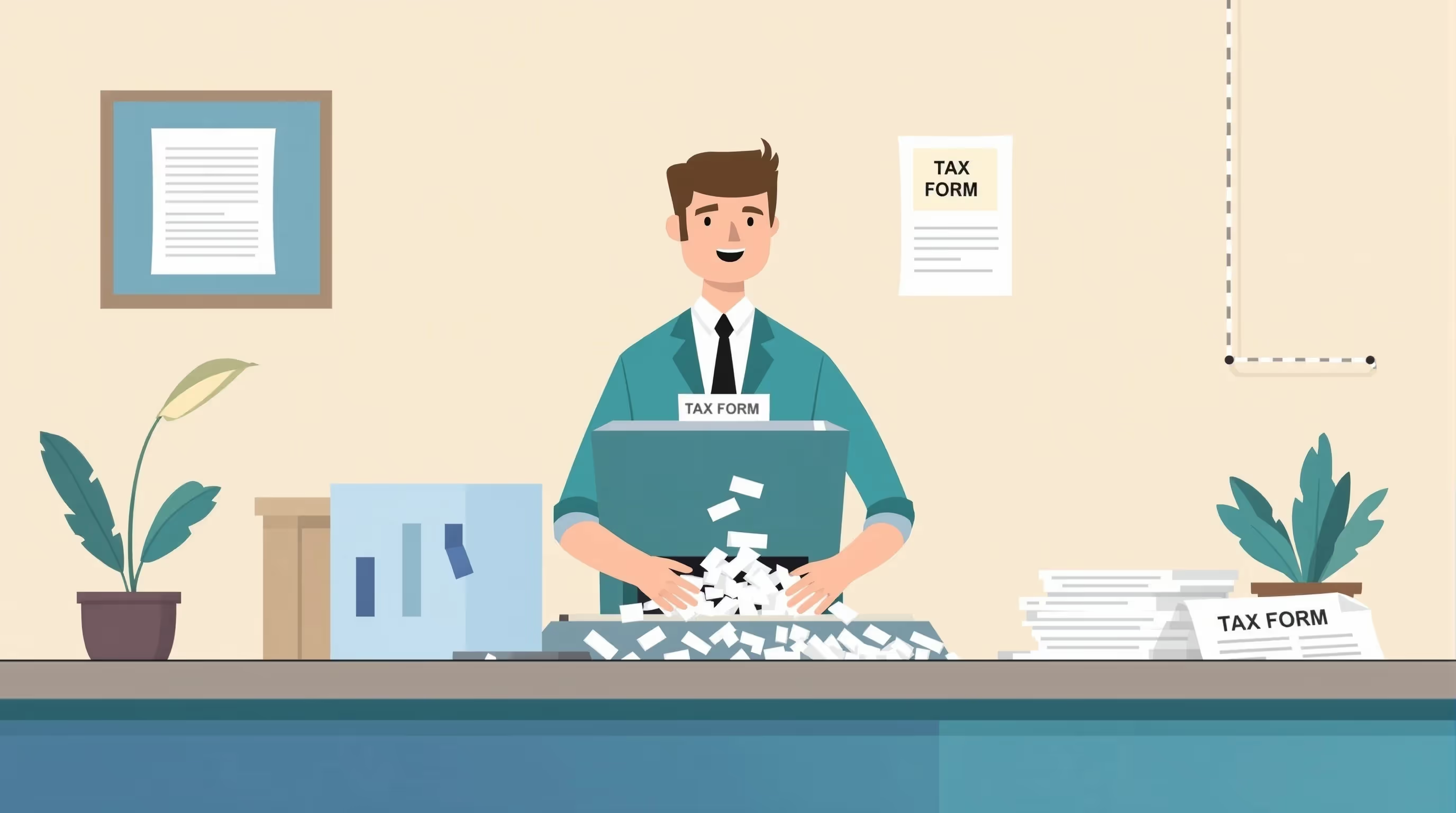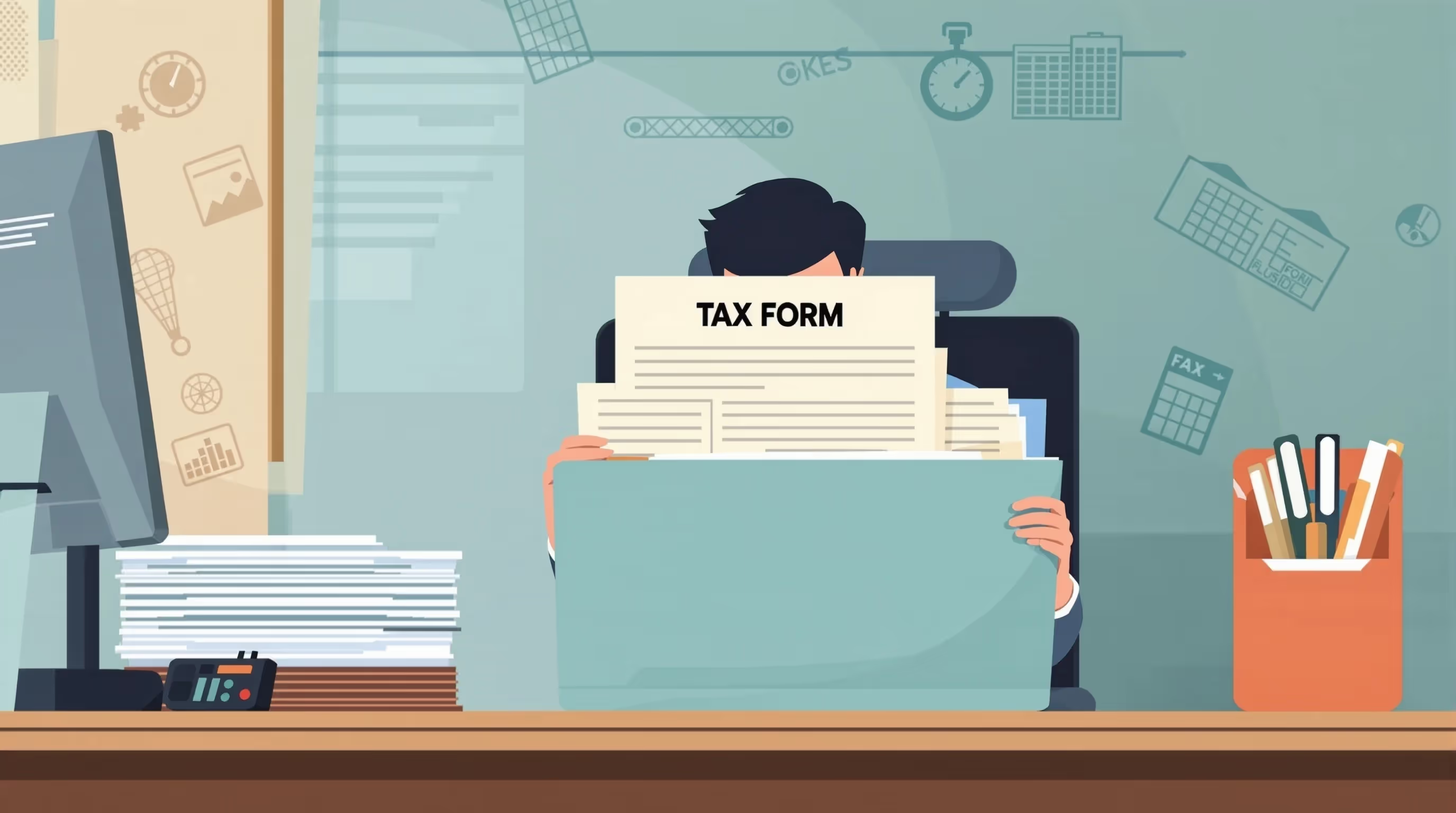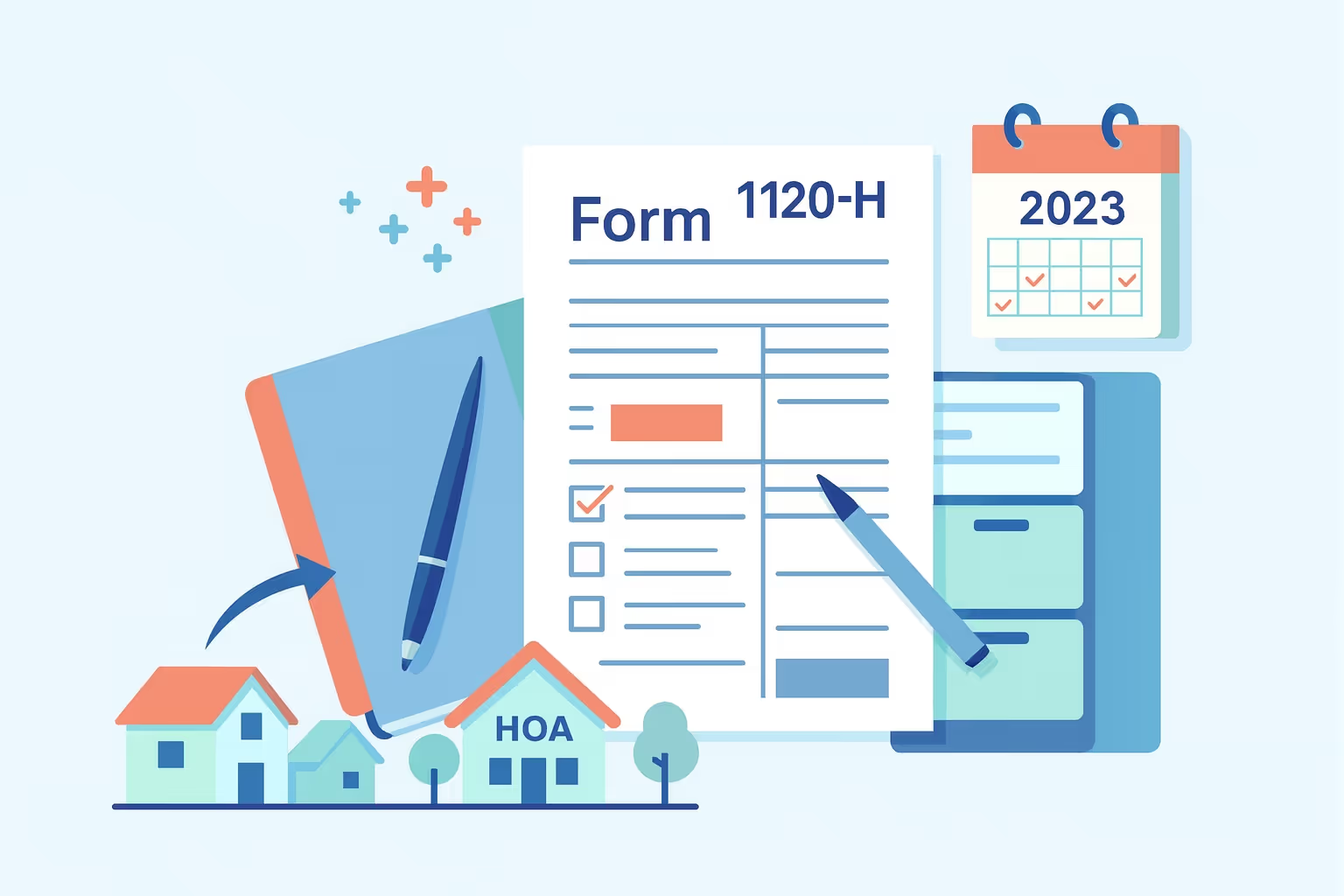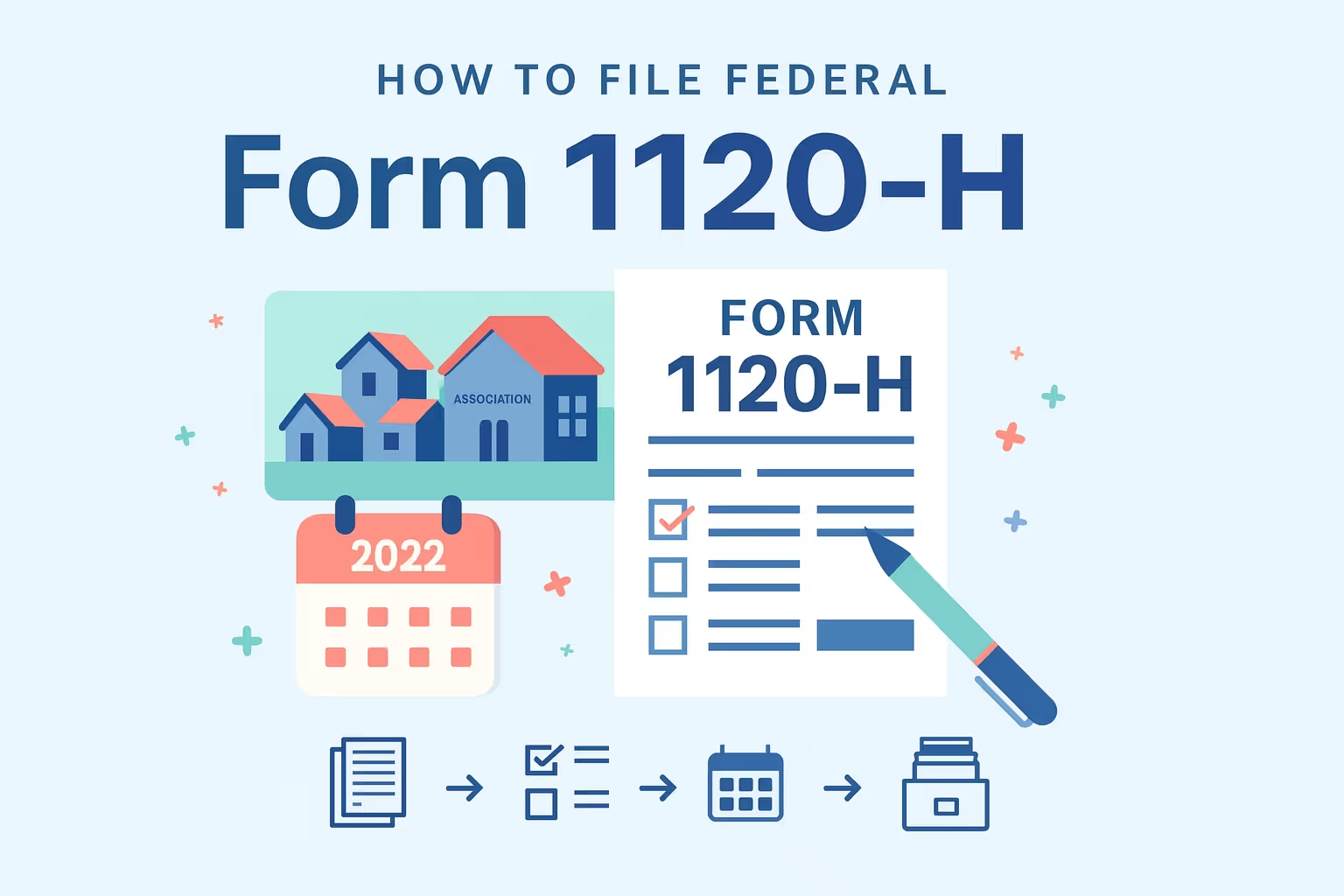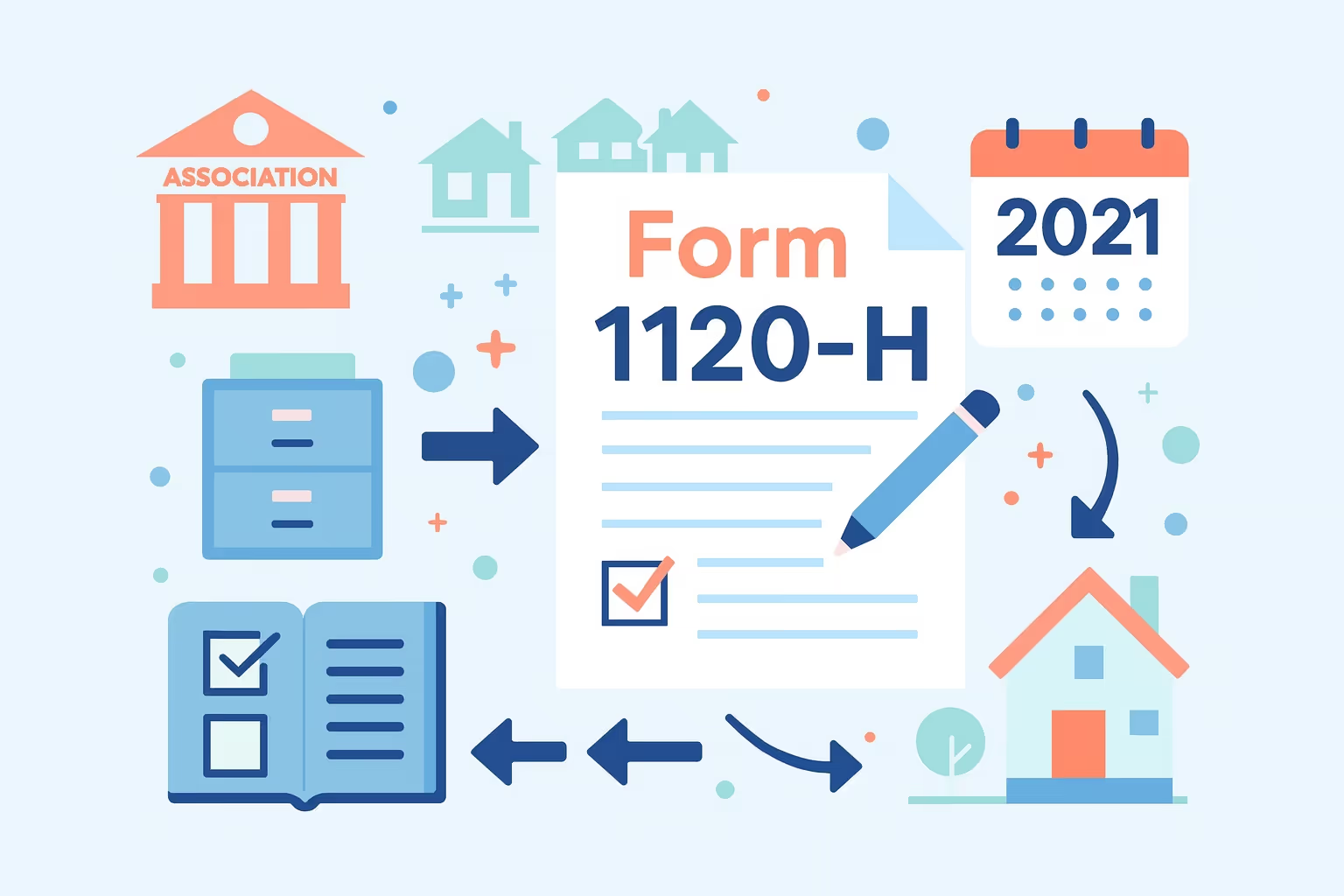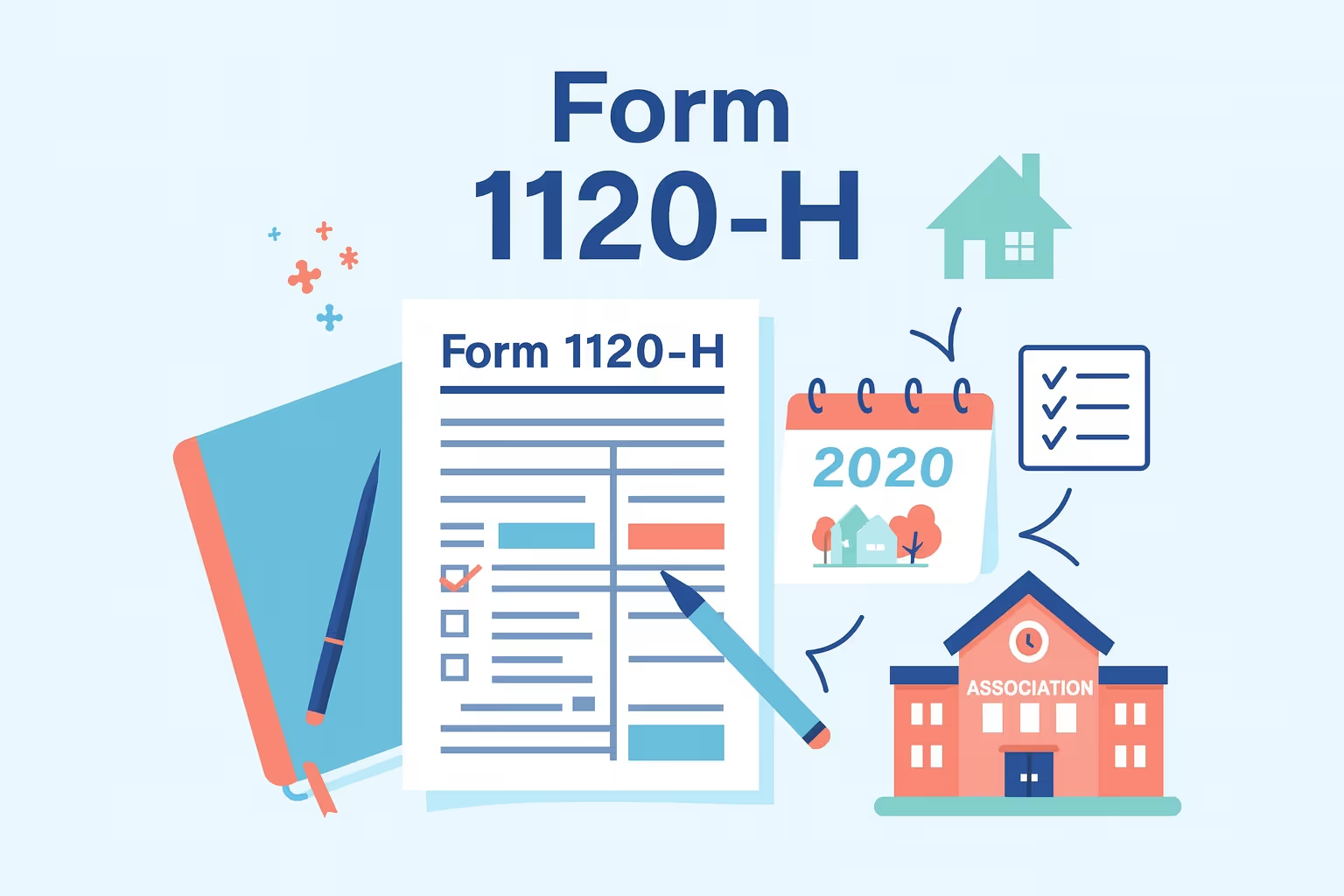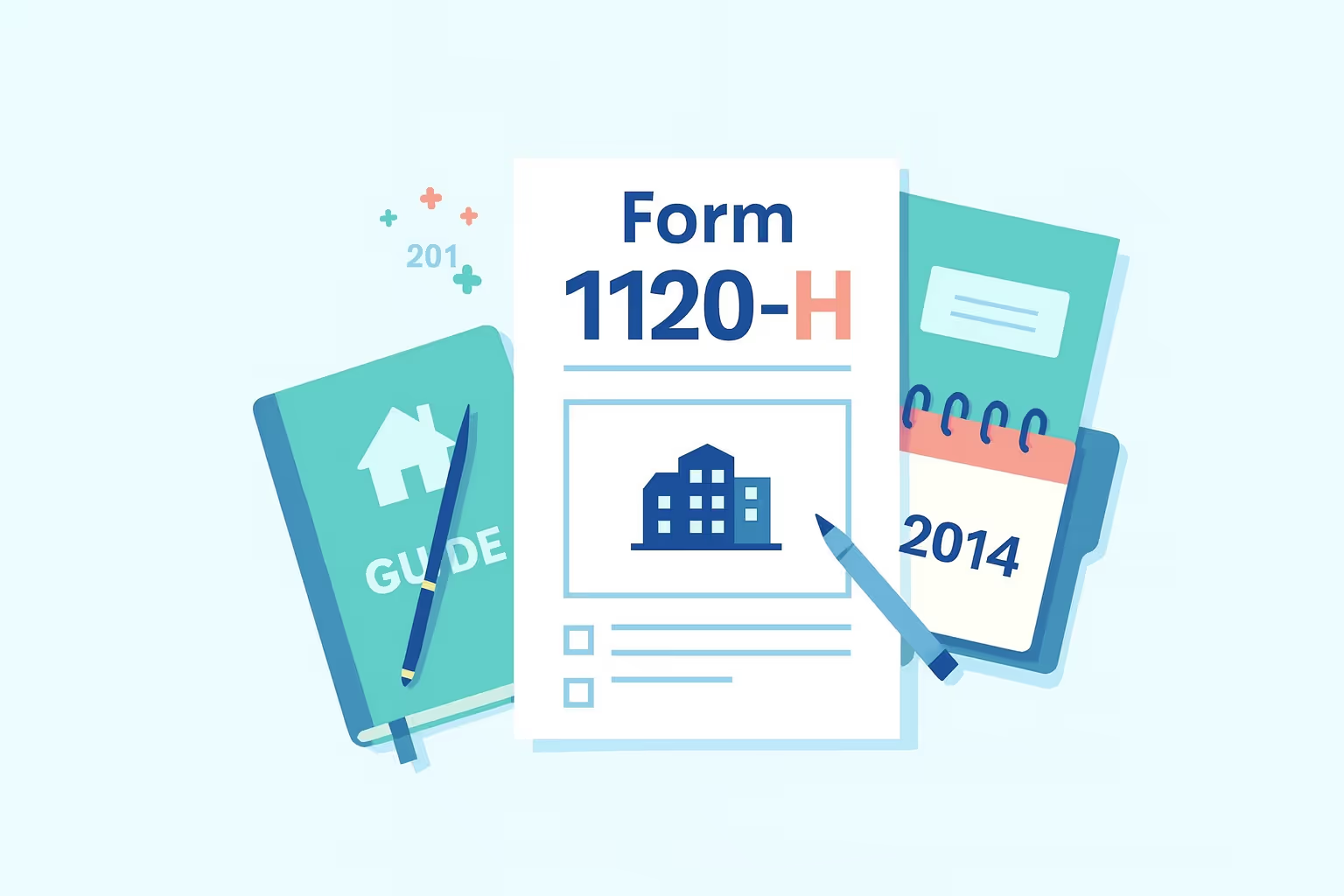
What IRS Form 1120-H (2022) Is For
Form 1120-H is the U.S. corporation income tax return used by homeowners associations that elect certain tax benefits under Section 528 of the Internal Revenue Code. This tax form allows condominium management associations, homeowner associations, and timeshare associations to exclude exempt function income while paying a flat tax rate only on non-exempt income.
Exempt function income consists of membership dues, assessments, and fees used to maintain association property and common elements. Filing this income tax return helps an association manage tax liability, safeguard tax-exempt status, and meet Internal Revenue Service requirements for the tax year. When prepared correctly, Form 1120-H simplifies tax responsibilities for HOA taxes, reduces exposure to tax issues, and helps maintain the association’s financial health.
When You’d Use Form 1120-H for 2022 (Late or Amended Filing)
An association files Form 1120-H for 2022 when it needs to submit a late return, correct errors, or respond to IRS notices. Many homeowner associations file Form 1120-H because it allows them to exclude exempt function income and avoid more complex corporate tax rules. If a filing deadline was missed due to a legal holiday, business day timing, or delays during tax season, the association may still file tax returns to remain compliant.
However, untimely filings risk forfeiting the Section 528 regulatory election and may require filing Form 1120 instead, which applies regular corporate tax rates to net income. Late filings often involve misclassifying income, overlooking exempt income, or misunderstanding how non-exempt income affects taxable income. Filing promptly supports accurate records for the association's income, net earnings, and tax payments.
Key Rules Specific to 2022
- Qualification tests: The association must pass both the 60 percent gross income test and the 90 percent expenditure test, based on its gross income and expenditures.
- Flat tax rate: Condominium and residential associations pay a 30 percent flat tax rate, while timeshare associations pay 32 percent on non-exempt income related to timeshare ownership interests.
- Annual regulatory election: The Section 528 election must be made each tax year by submitting Form 1120-H promptly.
- Minimum IRS penalty: Returns filed more than 60 days late incur a minimum penalty of $450 or the tax due, whichever is smaller.
- Correct income classification: Income must be correctly categorized because misidentified function income or usage fees may jeopardize the association’s tax-exempt benefits.
Browse more tax form instructions and filing guides in our Forms Hub.
Step-by-Step (High Level)
- Gather IRS transcripts: Use Form 4506-T to review prior tax returns, estimated tax payments, and account activity recorded by the Internal Revenue Service.
- Prepare the 2022 Form 1120-H: Carefully complete all tax forms, ensuring exempt function income, non-exempt income, and the regulatory election are accurately reported.
- Attach schedules: Include schedules for direct expenses, capital expenditures, association fees, and non-exempt expenses to support all amounts on the tax form.
- Choose filing method: Mail the return to the appropriate IRS center or use an authorized e-file provider listed on the IRS website.
- Retain documentation: Maintain copies of the filed return, real estate taxes, property taxes assessed, and all supporting records for the association’s financial health.
Learn more about federal tax filing through our IRS Form Help Center.
Common Mistakes and How to Avoid Them
- Misclassifying exempt function income: Confirm which dues, assessments, and fees qualify as exempt function income to prevent incorrect taxable income calculations.
- Failing qualification tests: Review the association’s gross income and expenditures early to ensure the 60 percent and 90 percent tests are satisfied before filing the election.
- Applying incorrect tax rates: Verify the correct flat tax rate for condominium associations, homeowner associations, or timeshare associations to avoid tax underpayment or overpayment.
- Ignoring the $100 specific deduction: Apply the deduction against non-exempt income to reduce tax liability and avoid paying tax on a higher taxable base.
- Missing filing deadlines: Track the filing deadline carefully, including adjustments for any legal holiday or business day rule, to preserve eligibility for Form 1120-H.
- Using incorrect corporate tax rules: File Form 1120-H instead of Form 1120 when eligible, so the association avoids calculating tax based on corporate tax brackets.
- Reporting incomplete entity information: Double-check the association’s EIN, legal name, and address to ensure the Internal Revenue Service accepts the return.
- Mislabeling income from ownership interests: Confirm that income from condominium housing units, condominium projects with substantially residential units, and ownership interests is categorized correctly.
- Omitting required schedules: Attach all supporting schedules for expenses, capital expenditures, and function income to prevent the IRS from requesting additional information.
- Not consulting a tax professional: Seek help from a qualified tax professional when facing complex tax responsibilities or unclear income classifications.
Learn more about how to avoid business tax problems in our guide on How to File and Avoid Penalties.
What Happens After You File
The Internal Revenue Service typically processes e-filed HOA tax returns more quickly than paper submissions, though late filings may take longer. Notices may be issued if the IRS needs clarification on taxable income, non-exempt income, or exempt income categories. If additional tax is owed, interest and penalties accrue from the original due date. Associations may pay tax through online tax payments or installment arrangements.
If disagreements arise, associations may appeal through IRS Appeals or petition the Tax Court. Completing the filing process promptly supports the association’s financial health and reduces long-term tax issues.
FAQs
Can I still file IRS Form 1120-H (2022) if my homeowners association missed the deadline?
Yes, associations may still file Form 1120-H after the deadline; however, late filing may result in forfeiture of the Section 528 regulatory election. Filing helps maintain compliance for the tax year and ensures the Internal Revenue Service records the tax return, even if certain tax benefits cannot be claimed.
How does exempt function income affect my corporation's income tax return?
Exempt function income allows an association to exclude exempt function income when filing a corporation income tax return under Section 528. Because exempt function income consists of dues and assessments used for association property, proper classification helps reduce HOA taxes and ensures the association pays tax only on non-exempt income.
Should my homeowners association file Form 1120-H or Form 1120?
Most associations prefer to file Form 1120-H because it simplifies tax preparation and avoids applying corporate tax rates to net income. Associations that fail the 60 percent gross income or 90 percent expenditure tests must use Form 1120 instead, which taxes net income using standard corporate tax brackets.
What exempt income is allowed when filing HOA tax returns?
Exempt income includes membership dues, assessments, and fees related to maintaining common areas, association property, and essential association services. When filing HOA tax returns, exempt income is treated as functional income rather than taxable income, reducing the impact of HOA taxes.
Do I need to file tax returns for prior years if my association missed earlier deadlines?
Yes, associations should file tax returns for all missed years to correct tax liabilities and support future eligibility for 1120 h elections. Filing outstanding returns strengthens compliance and prevents additional issues during future tax seasons.






